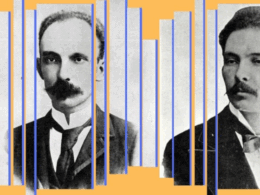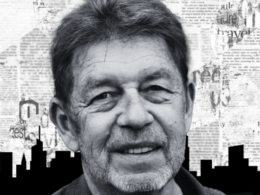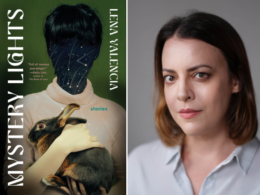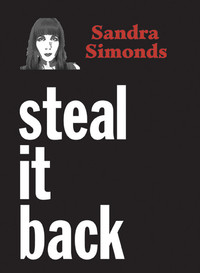
Our series of guest blog posts by writers of fiction, poetry, essays, and history continues today with a contribution from poet and critic Sandra Simonds. Her fourth collection of poems, Steal It Back, was published this week by Saturnalia Books.
As a poet I’ve had to build a literary canon out of what has been urgently necessary for me, for my emotional, mental, and physical survival as my life unfolds. Therefore, the writers who have been most powerful for me, the writers who have spoken my language, understood my struggles, joys, and triumphs as a poet and mother, tend to be poets I have needed at very specific moments of crisis.
Books save us because they tell us that other writers have had lives like ours—of course that’s if these poor writers even make it through the fiery literary gates of cultural history, since often the very writers we’re desperate for are precisely the poets who get left out, ignored and erased from history. Most of them burn before they even get to the gates, but I’m thankful for the few who get through. So what is a classic? For me, the test is if I go back to the book at different difficult points in my life and it brings me new ways to go on, if it opens up new roads or ideas. These are a few American writers who most influenced Steal It Back.
Claude McKay, sonnets. McKay’s sonnet “If We Must Die” is basically the best sonnet of anyone ever anywhere ever ever ever: “If we must die let it not be like hogs.” If this sonnet doesn’t make you want to burn shit down, then I just don’t know what to say.
What I learned from McKay: ethical engagement, emotional intensity, rage, speaking truth to power.
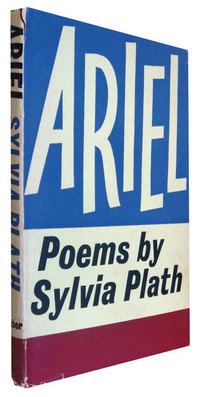
Sylvia Plath, “Ariel.” Plath was a badass diva who should have lived. Sometimes when I go on long, experimental walks in Tallahassee and I’m listening to the birds and squirrels and owls and other living things in the trees, the line “stasis in darkness/ then the substanceless blue/ pour of tor and distances” just comes into my head like a ghost haunting me. This book seems to be almost written from death taking one last sweeping look at life.
What I learned from Plath: linguistic power and control, crafting each line, truth, rage, not to kill yourself.
Allen Ginsberg, “Howl.” I read this poem in high school like everyone else and reading it was one of those “Oh, okay, I’m a poet” moments, like I was being greeted by the force of poetry itself. What I love about this poem is its emotional intensity and relentlessness, its utter excessiveness and the way that it’s political and personal, moving and intimate; it feels like a poem that had to be written.
What I learned from Ginsberg: Overflow, messiness, follow your instincts in writing, don’t let anyone tell you what to do. Again, it’s okay to be crazy.
Lorine Niedecker, Selected Poems. A poetry full of tiny moments of the transformative powers of the imagination, based in the material reality of the present moment. I love that Niedecker is a political poet but she navigates the political in a very graceful and subtle way that makes you feel almost relaxed and at home in her little stanzas. Here’s a good example of what I mean.
What I learned from Lorine Niedecker: observation, especially of the natural world; it’s okay to be small if you’re actually enormous, and her soul is clearly enormous.
Mina Loy, “Lunar Baedeker.” If poetic diction could get a “best dressed” award, I would vote for the modernist poet Mina Loy. Within a few stanzas of the “Lunar Baedeker,” she uses the words “cornucopia,” “somnambulists,” “livery,” “parvenus,” “infusoria”—and it doesn’t stop there. Read the poem (if anything, to learn a few vocabulary words to impress people at the next party you go to).
What I learned from Mina Loy: If a modernist can put cocaine in her poem, you can too!
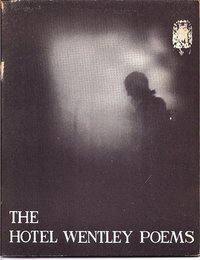
John Wieners, The Hotel Wentley Poems. The dude wrote a poem called “A Poem for Cocksuckers”. . . . I don’t think that there’s much more to say.
What I learned from John Wieners: It’s okay to be batshit crazy if you can write like an angel.
John Steinbeck, _The Grapes of Wrath. I read this book in high school and I’m pretty sure that the end, when Rose of Sharon breastfeeds the starving man, is one of the most beautiful moments of literature. All of the discussion of work and labor must be one of the reasons I became so involved with the labor movement.
What I learned from Steinbeck: That what happens in the microcosm (family, work) is a direct consequence of large political forces that are often beyond our control, but we have to start understanding that large structure so that we can change it and create better lives for ourselves and our children. Power to the people.
In addition to Steal It Back, Sandra Simonds is the author of three previous books of poetry: _The Sonnets (2014), Mother Was a Tragic Girl (2012), and Warsaw Bikini (2008). Her poems have been included in The Best American Poetry 2015 and 2014 and have appeared in Poetry, The Believer, The Colorado Review, Granta, and Ploughshares, among other journals. She is assistant professor of English and Humanities at Thomas University and lives in Tallahassee, Florida.

